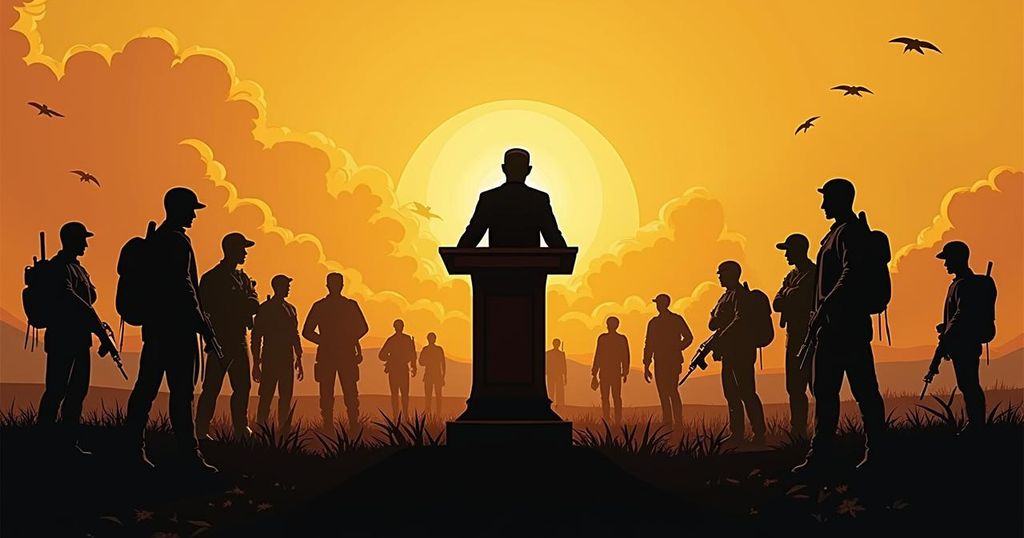Israeli Prime Minister Benjamin Netanyahu, during his address to the UN General Assembly, indicated that military actions against Hezbollah would persist without an immediate ceasefire. He warned of Iran’s involvement and highlighted Israel’s capabilities to respond firmly against threats. The conflict has resulted in substantial casualties, with over 600 reported deaths in Lebanon alone, alongside continuing skirmishes. The broader regional implications are pronounced, particularly regarding Iranian support for militant factions and the humanitarian crisis stemming from ongoing hostilities.
In a robust address to the United Nations General Assembly, Israeli Prime Minister Benjamin Netanyahu underscored Israel’s commitment to ongoing military operations against Hezbollah, effectively ruling out any prospects for an immediate ceasefire. This declaration coincides with reports from Israeli officials indicating preparations for a potential ground incursion into Lebanon. A significant portion of Mr. Netanyahu’s speech was dedicated to addressing threats posed by Iran, conveying that Israel must counteract hostilities orchestrated by Tehran in multiple conflict zones. He asserted, “There is no place in Iran that the long arm of Israel cannot reach, and that is true of the entire Middle East.” The intensity of the conflict in Lebanon has escalated over the past week, with Israel intensifying its campaign against Hezbollah, resulting in the deaths of over 600 individuals in Lebanon, as reported by the country’s Health Ministry. Concurrently, exchanges of fire between the Israel Defense Forces and Hezbollah continued, further escalating casualties on both sides.
The ongoing tensions between Israel and Hezbollah are rooted in a long history of conflict, primarily driven by territorial disputes, ideological differences, and the broader Israeli-Palestinian conflict. The recent escalation follows a severe increase in hostilities, largely instigated by the unprecedented cross-border attacks by Hamas on October 7, which catalyzed an Israeli declaration of war. The Israeli military campaign has resulted in substantial casualties in Gaza and Lebanon, leading to widespread humanitarian crises and international debate regarding military responses in the region. Furthermore, the geopolitical landscape is complicated by the involvement of regional powers such as Iran, which supports militant groups in opposition to Israel, thus reinforcing the cycle of violence and conflict.
The address by Prime Minister Netanyahu at the United Nations marks a pivotal moment in the ongoing conflict between Israel and Hezbollah, indicating a lack of immediate resolution amid escalating military actions. This situation reflects the complex interplay of local and regional dynamics, particularly the undercurrents of Iranian influence and broader implications for Middle East stability. As casualties continue to mount, both within Lebanon and Gaza, the international community faces challenging questions regarding intervention, humanitarian assistance, and the quest for lasting peace in the region.
Original Source: www.washingtonpost.com







